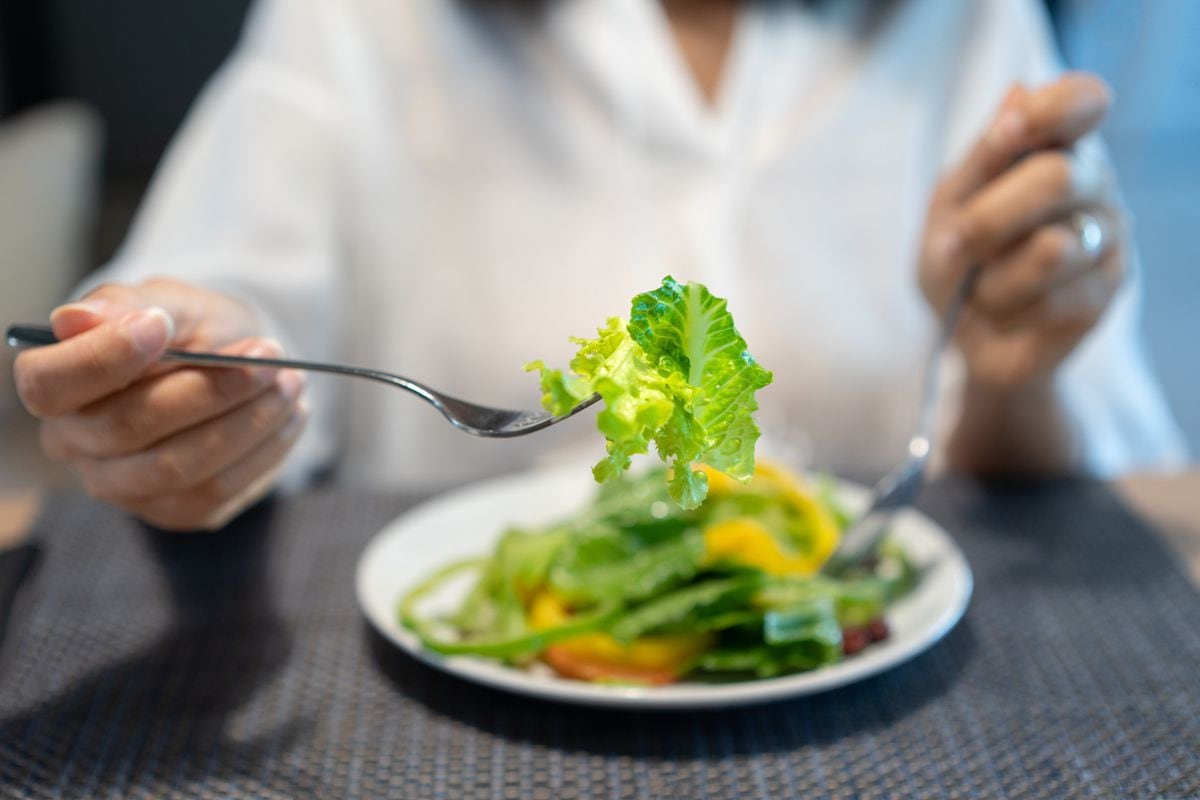
The term “diet culture” refers to the beliefs, behaviors and attitudes about food, body image, physical activity and, of course, weight loss. Diet culture tells us that being thin is the ultimate goal, and anything we do to be thin is valid. Some authors define it as the belief system that venerates thinness and equates health and moral virtue.
Recently, Spanish fashion designer Agatha Ruiz de la Prada jokingly said (or so I hope) that it was becoming fashionable to go out to dinner with friends, and that she did not go, because it was fattening. She said that she prefers to stay at home eating a natural yogurt with just a little sugar, or none at all. That if she does go out to dinner, it’s with men, because men drink and because, I guess, with them there’s always the possibility that there will be some cardio after to burn off the calories from dinner.
Such statements stem from diet culture. Food only matters to the extent that it makes us fat, it is devoid of enjoyment, and we should cancel plans out of fear of gaining weight. She put words to what many women have done or felt in order to be thin: being thin gives us the privilege of being seen, attractive, and brings us closer to the promised happiness of thinness, that is, success.
However, food, in addition to nourishing us, has other functions. As an emotional regulator, food releases neurotransmitters such as dopamine, which make us feel good when we eat it. Diets, and the diet culture, have deprived us of this luxury so accessible to all, and have associated it with weakness and unwillingness. Many on social media — nutritionists, influencers and what have you — claim to have the key to keep us from emotional eating. I am sorry to say that such a trick does not exist, because we can only stop eating emotionally if we die. We are emotions and we eat with and because of them too. That hunger is real, we feel it.
Denying the pleasure that we get from eating and denying that food should be tasty and gratifying is a way of continuing to divide us between those who eat well and those who eat poorly, the thin and the weak, as if the enjoyment of food were incompatible with health. I suppose that those who defend a diet that is not pleasurable are the same people who have sex for the sole purpose of procreation.
Diet culture has desecrated everything related to food and health, turning it into an avenue for weight loss. In fact, the term “taking care of yourself” has become a euphemism for slimming down.
Some of the characteristics of the diet culture are:
- The promotion of restrictive diets: detox, the pineapple diet, and fasting. Before and after dieting models are often used, which makes people understand that one body was bad and the other good, and, of course, the thinner one is the ideal one. These before and after publications are devoid of the personal context — that person may have gone through a depression, an illness, a bad mental health state… But instead, we’re told that the important thing is how thin she has become. Thinness in spite of everything; thinness, no matter what.
- The stigmatization of being overweight and obese: to the extent that you do not conform to the standard of thinness and the traditional canons of beauty, you will be mocked and made fun of. These jokes, this extreme cruelty, are said to be “for your own good,” to make you react and take action (i.e., lose weight). The pathologizing discourse on weight loss is constructed as a means to achieve, in addition to health, self-esteem, happiness and a higher social status (Harrison, 2019).
Saying that being thin is something you can achieve with effort and sacrifice denies body diversity and ignores the mental health consequences, the possible development of eating disorders, the metabolic damage to your body from countless diets, the frustration, body-shame, the dent in self-esteem… One patient, who had gone through a pretty tough cancer, told me that she would rather go through it again than put on weight again. To that extent we are traversed by diet culture.
The fear of getting fat is the fear of living, it is the patriarchal view of women’s bodies, in which the passage of time is not permitted and our bodies are not allowed to change, age, mature. In which there is only one body model, and that is young and thin. It is also a way to keep us always at war with our body, and therefore submissive.
Sign up for our weekly newsletter to get more English-language news coverage from EL PAÍS USA Edition
